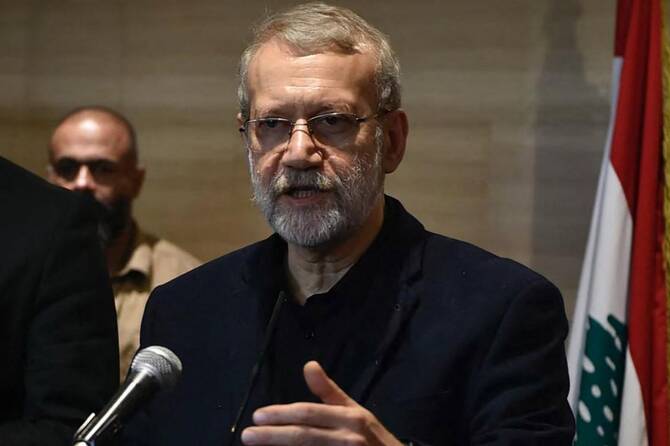News Flash
News Flash

TEHRAN, Aug 11, 2025 (BSS/AFP) - The head of Iran's top security body, Ali
Larijani, will visit Iraq on Monday before heading to Lebanon, where the
government has approved a plan to disarm Tehran's ally Hezbollah, state media
said.
"Ali Larijani departs today (Monday) for Iraq and then Lebanon on a three-day
visit, his first foreign trip since taking office last week," state
television reported
Larijani will sign a bilateral security agreement in Iraq before heading to
Lebanon, where he will meet senior Lebanese officials and figures.
His trip to Lebanon comes after Tehran expressed strong opposition to a
Lebanese government plan to disarm Tehran's ally Hezbollah, a stance
condemned by Beirut as a "flagrant and unacceptable interference".
"Our cooperation with the Lebanese government is long and deep. We consult on
various regional issues. In this particular context, we are talking to
Lebanese officials and influential figures in Lebanon," Larijani told state
TV before departing.
"In Lebanon, our positions are already clear. Lebanese national unity is
important and must be preserved in all circumstances. Lebanon's independence
is still important to us and we will contribute to it."
On Monday, Iran's foreign ministry spokesman Esmaeil Baqaei said Larijani's
trip "aims to contribute to the maintenance of peace in the Middle East
region".
He said that Iran recognised Lebanon's "right to defend itself against the
aggression of the Zionist regime (Israel)," adding that this would be
"impossible without military capabilities and weapons".
Before its war with Israel, Hezbollah was believed to be better armed than
the Lebanese military. It built its popularity, in part, on resistance to
Israel, which occupied southern Lebanon for nearly two decades until 2000.
On Saturday, Ali Akbar Velayati, a senior advisor to Iran's supreme leader,
described the plan to disarm Hezbollah as compliance "to the will of the
United States and Israel".
The disarmament push followed last year's war between Israel and Hezbollah,
which left the group, once a powerful political and military force, weakened.
It also comes amid pressure from the United States and anti-Hezbollah parties
in Lebanon, as well as fears Israel could escalate its strikes if the group
remains armed.
Iran appointed 68-year-old Larijani to head the Supreme National Security
Council, which is responsible for laying out Iran's defence and security
strategy. Its decisions must be approved by the country's supreme leader,
Ayatollah Ali Khamenei.
The appointment comes after a 12-day war with Israel, which began the
conflict with an unprecedented attack on Iran in mid-June striking military,
nuclear and residential sites.